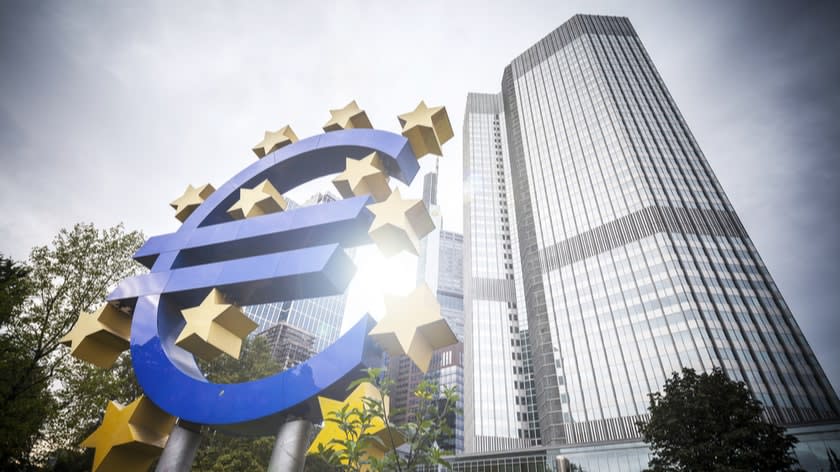Fall in eurozone core inflation should see ECB pause

The first estimate for eurozone inflation in August showed that the headline rate stabilised at 5.3%, but that the core rate declined to 5.3%, down from 5.5% in July. The outcome of the August inflation report, combined with the publication of a number of economic data releases, as well as business surveys for July-August, that underline the weakness in the eurozone economy, will probably convince the ECB that it can refrain from hiking at the September Governing Council meeting.
The first estimate for eurozone inflation in August showed that the headline rate stabilised at 5.3%. This stabilisation was entirely due to higher energy inflation, with core inflation declining to 5.3%, down from 5.5% in July, and food price inflation also falling (to 9.8% from 10.8%). The rise in energy inflation (to -3.3%, up from -6.1% in July) seems only partly due to a pick-up in the yoy rise in oil prices (and car fuel inflation) as natural gas prices (and household energy) had a downward impact on inflation in August. On top of that, differences in the timing of the introduction and phasing out of energy support measures since the start of the war in Ukraine, have a strong impact on eurozone energy price inflation at the moment. For instance, energy inflation soared in France in August (to +6.8%, from -3.7% in July) and dropped lower in the Netherlands (to -28.6%, from -21.4%). These effects will continue to play an important part in eurozone energy inflation, and therefore headline inflation, during the rest of this year. For example, the price ceiling in the Netherlands, which has been active from January of this year onwards, will lead to a negative contribution of energy inflation to total inflation of roughly 2.5 pps in the Netherlands in the second half of 2023.

Within core inflation, the inflation rate of non-energy industrial goods prices declined to 4.8% in August, from 5.0% in July and services price inflation fell to 5.5% from 5.6%. We expect further declines in core inflation during the rest of year. Global goods price inflation should continue to fall due to the weakness in global goods demand. Services inflation should also fall during the rest of the year. Detailed inflation data from individual countries indicate that services inflation was lifted by a rise in the inflation rate of package holidays in August, which should decline again in the coming months. More fundamentally, we think that services inflation will gradually cool during the rest of the year, as sluggish demand will limit price rises. Indeed, recent surveys for activity in services have indicated a significant slowdown. Also, we expect the eurozone economy to contract moderately or be roughly stagnant in the next few quarters, which should weigh the labour market and reduce wage growth and underlying inflationary pressures. The outcome of the August inflation report, combined with the publication of a number of economic data releases, as well as business surveys for July-August, that underline the weakness in the eurozone economy, will probably convince the ECB that it can refrain from hiking at the September Governing Council meeting. Although the ECB will present this as a pause rather than the peak in rates, we think the rate hike cycle is already behind us.

